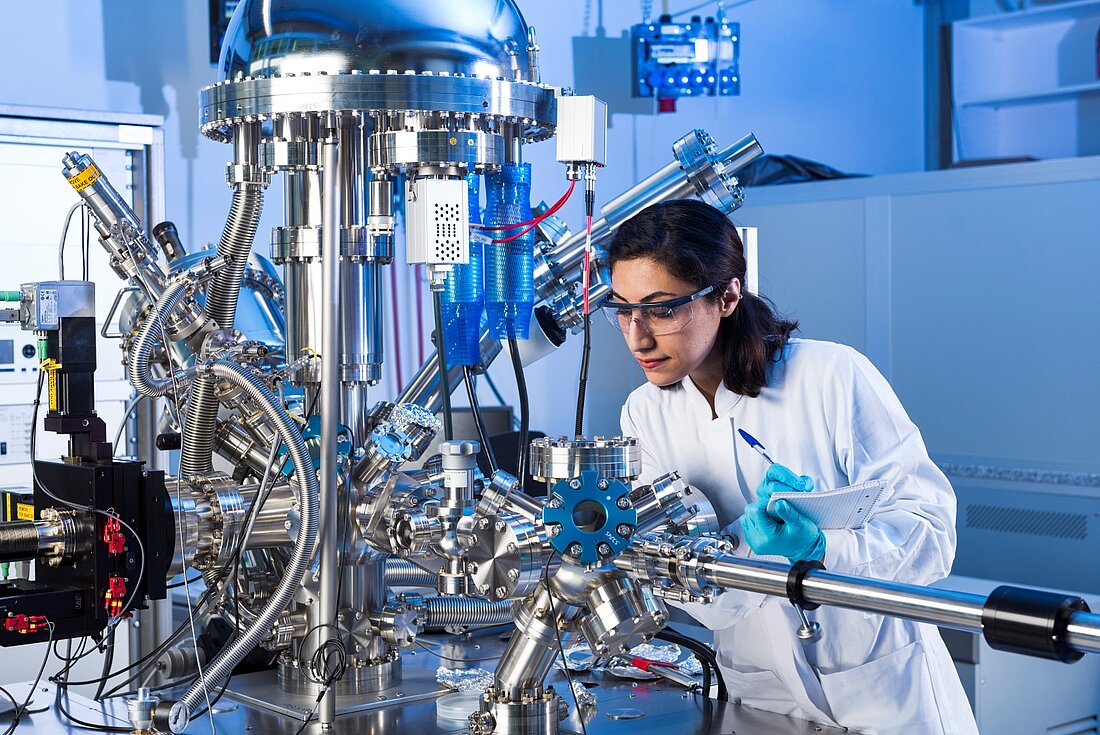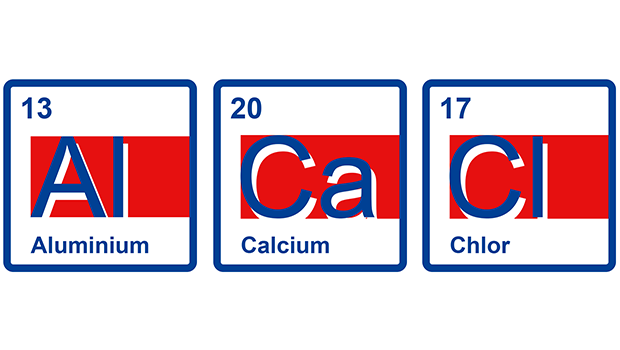Overview

Research Overview
The Cluster of Excellence POLiS investigates new battery materials and technology concepts for efficient and sustainable storage of electrical energy. The Cluster aims at developing electrode materials and electrolytes that allow for sustainable systems based on Sodium, Magnesium, Calcium, Aluminium, and Clorine ions. Major obstacles for the development and use of post-lithium systems and thus the legitimation for our research are:
- Low ionic mobility in solids and liquids,
- Lack of well-designed materials interfaces with suitable charge transfer properties,
- Degradation of active materials and electrolyte, and
- Lack of reversibility of charge- and discharge processes.
 Laila Tkotz
Laila Tkotz
The major challenges of our research project are addressed in four research groups, which are dedicated to the four main topics Electrode materials, Electrolytes, Interfaces and Integration & Sustainable Cell Technology. The research groups are organized in 14 work packages that include interdisciplinary projects. POLiS follows a multidisciplinary approach, including solution and materials chemistry, electro-chemistry, predictive atomistic and continuum modelling, as well as chemical and process engineering. Arising concepts for materials design will be validated in full battery cells, examining performance, sustainability and safety issues. A rapidly increasing demand can be observed for future batteries that comprise the following and define our research:
- Sustainable materials and fabrication processes
- Increased volumetric/gravimetric energy density
- Intrinsically safe design
- Long operational and shelf life
- Low price per kWh
Sodium-ion batteries (SIBs) have attracted much interest as a sustainable alternative to lithium-ion batteries (LIBs) due to their low cost and natural abundance of sodium resources. Among the various post-lithium options, this technology is the most mature one and it also represents one of the strongest research focus within POLiS. Indeed, in POLiS, the topic “sodium” is explored in all different aspects: from the synthesis of new cathode and anode materials to theoretical calculations and elucidation of the underlying storage mechanism with the help of advanced techniques; from the electrolyte formulation and its impact on the electrode surface to the influence on safety/degradation aspects. With strong synergies among chemists, physicists, engineers, and the infrastructures available within POLiS at the different locations (Ulm, Karlsruhe and Gießen), we aim to develop a novel POLiS Na-ion battery cell which is made out of sustainable, abundant materials. The battery cells will be benchmarked against a LFP/ Gr (Lithium iron phosphate/ Graphite) cell system, namely the state of the art LIB cell chemistry that is comparable to new generation SIBs.
Magnesium offers many useful properties for electrochemical energy storage: it is highly available on earth and non-toxic, it transports two charges per Mg-ion instead of just one (like lithium), and it allows sufficiently high cell voltages. Another great advantage is that the deposition of magnesium at the negative electrode of a battery does not lead to dendrite formation and thus short circuits as with lithium, so that the undiluted magnesium metal can be used as a safe anode with a very high capacity. This means that the Mg battery has great potential to develop into a safe, sustainable and high-performance battery technology.
Important obstacles on the way to a competitive magnesium battery are the low ionic mobility of the ion in solids and liquids, the insufficient capacity of the positive electrode and the kinetic barriers associated with ionic transport and insertion, which lead to a loss of battery efficiency. Within the cluster, we are trying to better understand these barriers and, based on this understanding, to eliminate them in order to develop a prototype of a magnesium battery within the next few years.
Initial theoretical investigations and experimental studies have shown that battery systems based on aluminium, calcium or chlorine are sustainable and safe and offer high volumetric energy densities. However, studies on electrolytes and intercalation and conversion electrodes are not yet as advanced as in the case of Na- or Mg-based batteries. POLiS researchers are focusing on significantly expanding the current state of knowledge and increasing the technological maturity of the various battery components. The scientists are designing and carrying out feasibility studies of cells to enable further efforts towards cell manufacture. The experimental work on cell components is complemented by theoretical modelling of host structures and electrolytes as well as sustainability studies and life cycle analyses.




